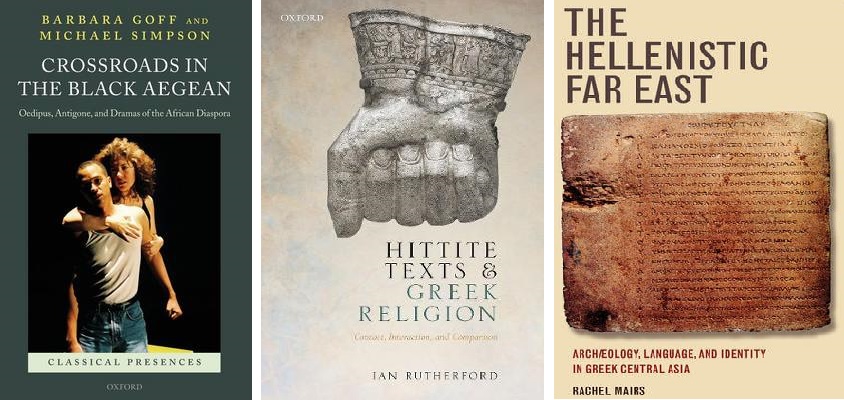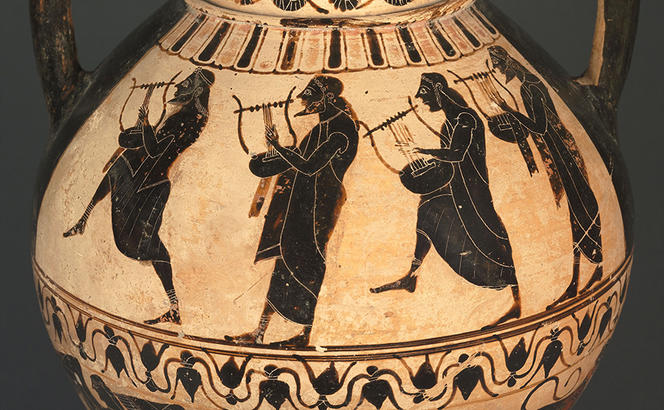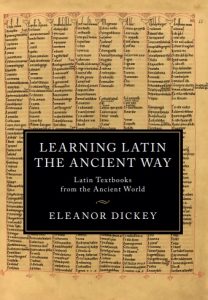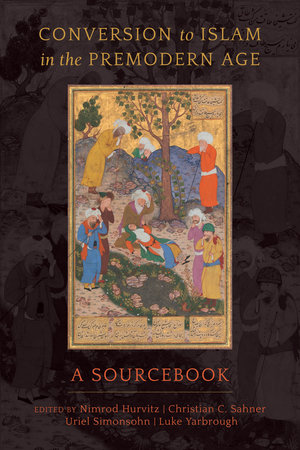
[Image of an image of Mithratic iconography and Latin inscription in a stone frieze. Lalupa]
Interviewee: Dr. Claudina Romero Mayorga. Interviewer: Bunny Waring.
Date: 16th April 2021
Welcome to the Classic Department’s series What’s it Like? During these episodes staff, volunteers and students who specialise in all fields of Classics, Archaeology and Museums, will share with you the realities of their jobs. What to be a Linguist? Museum Curator? Archaeologist? Lecturer? Well Travelled Researcher? A Barrier-Breaker? Have No Idea? Then read on!
This week: Dr Claudina Romero Mayorga
A Specialist in Sensorial Archaeology in Museums and Classics.
Name: Dr Claudina Romero Mayorga
Area of Specialism: Archaeology, Classics and Museums.
Topics of Interest: Ancient Mediterranean civilisations, material culture, education, sensorial archaeology, music, polychromy, 3d printing.
Job Title: Education officer at the Ure Museum and Sessional Lecturer at the Department of Classics.
Job Responsibilities: Develop and deliver educational sessions for primary and secondary schools, organise outreach activities, family events, lead the Young Archaeologists’ Club, research the collection, welcome visitors, manage volunteers and interns, teach Latin or Roman History to undergraduates.
Introduction
I grew up watching old films and documentaries about ancient civilisations: Egypt, Mesopotamia, Greece, Rome….everything sounded so mysterious and exciting! I wanted to know all about them so I started reading as much as I could. The objects left behind by them felt as if they still had a special power, so my focus was not so much on their languages, but on the material culture produced by these peoples who lived so many years before me. By the time I got to the university, “Gladiator” had already left a mark on me, and well…Romans are my thing now. I love working at the Ure Museum and teaching people about our amazing collection.

[A glimpse at some of the fantastic displays in the Ure Museum, including pots to get excited about. Ure Museum.]
What is your daily life really like?
Replying to emails takes most of my time! Before the pandemic, I would get lots of school groups in the Ure Museum and the time would just fly. Talking to kids, teachers, parents, looking at them being amazed by an ancient pot…Best feeling ever!!! Having children tell you that they want to be archaeologists and work in a museum after their visit is priceless…But in 2020 with the arrival of COVID, things changed dramatically. Although online sessions still felt great and children got to engage with 3D models, it wasn’t the same. I’m really looking forward to reopening soon!

[A YAC event (with permission) where young children are taught how to clean and understand ancient artefacts. Mayorga.]
A lot of my time is also spent planning new public events (online or face to face) for families, for older teens: trying to develop new educational resources for everyone, talking to my colleagues and other museums, updating our website, posting on our social media, writing grants applications and planning Young Archaeologist Club (YAC) sessions. If I’m teaching Roman History to undergrads, I need to prepare my classes and then mark their assignments. When I teach I try to make sure that they see that I’m passionate about the subject and that although everything seems to have been researched and discovered already, there’s still plenty to do.
I do love object-based research so whenever I have a bit of time, I would focus on a specific object and learn as much as I can. I also enjoy travelling; I like meeting colleagues in beautiful destinations to discuss our work, visit museums and tasting local food (this activity is also known as attending international congresses and seminars). Getting funds to do this can be very competitive and difficult, but I never give up!
 [Dr Mayorga and Assistant Curator of the Ure Museum Jayne Holly on a research trip. Mayorga.]
[Dr Mayorga and Assistant Curator of the Ure Museum Jayne Holly on a research trip. Mayorga.]
What is the best part of your job?
· Handling ancient objects is the best part without any doubt! I still feel like a 5-year-old when I hold an old pot.
· Working with the curator and assistant curator at the Ure is great fun, we’re always coming up with new projects and new challenges…I don’t know what a boring day at the office is.
· Learning from other colleagues
· Being mind-blown by kids’ questions
Why do you think your specialism is important?
Studying ancient civilisations, in general, makes you aware that some of the problems we face today as a society, already existed in the past (misogyny, elitism, poverty). Looking at the solutions they came up with – or the lack of them – might give us a better perspective of the circumstances we are living in. My interest in sensorial archaeology comes from my focus not on emperors and great characters, but on ordinary people: how they behaved, what they liked, whom they loved, what they ate, if they were happy – and if so, how they expressed that. I believe that trying to know another person (even if that person has been dead for more than 1000 years) generates empathy and there’s nothing more important right now than trying to understand the person who is in front of you.

[The Ure Museum’s Museum in a Box tells the life of Annie Ure, the co-founder of the Ure Museum, whose life studying antiquity highlighted women’s rights issues throughout the ancient and modern eras.]
If you didn’t have your current job, what else could you apply your skills to?
I guess I would be good in general admin, but I would do better in a position that would allow me to support or mentor young people. Teaching is a calling, whether it’s Classics or Economics, but I believe I would be good at working with younger people.
Did you always want to be what you are today?
Yes! Haha, I get to work in a museum and at the Uni, although I took the long and winding road to get here. People usually go for Museum Studies if they want to work with collections or in a heritage site. I started studying History of Art in Madrid and then my PhD in Archaeology offered fieldwork training: I was part of a team that dug up a Roman villa in Spain…and to spread the news among the locals I guided some tours and “played” with the finds to show kids how fun and interesting the Romans were. There I got bitten by the “museum bug” (beware!) and ended up researching lots of museum collections and storage facilities for my final dissertation in every single European country.

[Dr Mayorga teaching a range of students and volunteers about the importance of Museum collections. Mayorga.]
But I had to work and study at the same time, so it took me longer than expected. Volunteering and taking up education modules did the rest. But because I have a PhD in Archaeology people usually don’t understand why I’m the Education officer, as if researching and teaching were two completely different activities, when in the end they’re two sides of the same coin. I can’t conceive one without the other.
Where do you hope to be in 5 years time?
I hope the pandemic is over by then! I would love to see the government showering universities with funds, especially to support Humanities. Would love to have my role as an Education officer as full-time, and to continue teaching at the University of Reading. It would be great to have certain events and activities already cemented in our educational calendar (3D printed resources; Ancient music sessions).
What 3 tips would you give to someone who wants to follow a similar path?
- Go for whatever you love: languages, physics, computers. That will always stay with you, money won’t. Studying something that you don’t like is torture.
- Don’t believe everything you read: even if it is printed in a book by a famous author, it’s opened to discussion.
- Travel as much as you can.
What to know more?
If you’re interested in staying up-to-date with what events the Ure Museum has to offer head over to the Museum’s webpage here.













 Fear is a driving force behind human action, capable of pushing people to either exceed their own expectations or to prevent them from acting at all. As a powerful motivator, the emotion of fear had a pervasive presence in ancient life and thought. This is reflected in multiple ways throughout literature, juxtaposed with motivation, social interaction and power dynamics. Furthermore, as early as Aristotle’s Poetics, fear had already been understood as a ruling force and powerful notion for the construction of literary genres, especially tragedy. While evaluating the ancient literature as an integral part of understanding such a concept, the diverse influences of different fields of study, such as literary criticism, political theory, psychoanalysis, and philosophy, can add valuable insights.
Fear is a driving force behind human action, capable of pushing people to either exceed their own expectations or to prevent them from acting at all. As a powerful motivator, the emotion of fear had a pervasive presence in ancient life and thought. This is reflected in multiple ways throughout literature, juxtaposed with motivation, social interaction and power dynamics. Furthermore, as early as Aristotle’s Poetics, fear had already been understood as a ruling force and powerful notion for the construction of literary genres, especially tragedy. While evaluating the ancient literature as an integral part of understanding such a concept, the diverse influences of different fields of study, such as literary criticism, political theory, psychoanalysis, and philosophy, can add valuable insights. Author: Bunny Waring
Author: Bunny Waring

 [Dr. Lloyd Jones with research in hand, 2019.]
[Dr. Lloyd Jones with research in hand, 2019.]


 [The Cylix of Apollo with the chelys (tortoise-shell) lyre, on a 5th century BCE drinking kylix cup, Fingalo 2021]
[The Cylix of Apollo with the chelys (tortoise-shell) lyre, on a 5th century BCE drinking kylix cup, Fingalo 2021]














